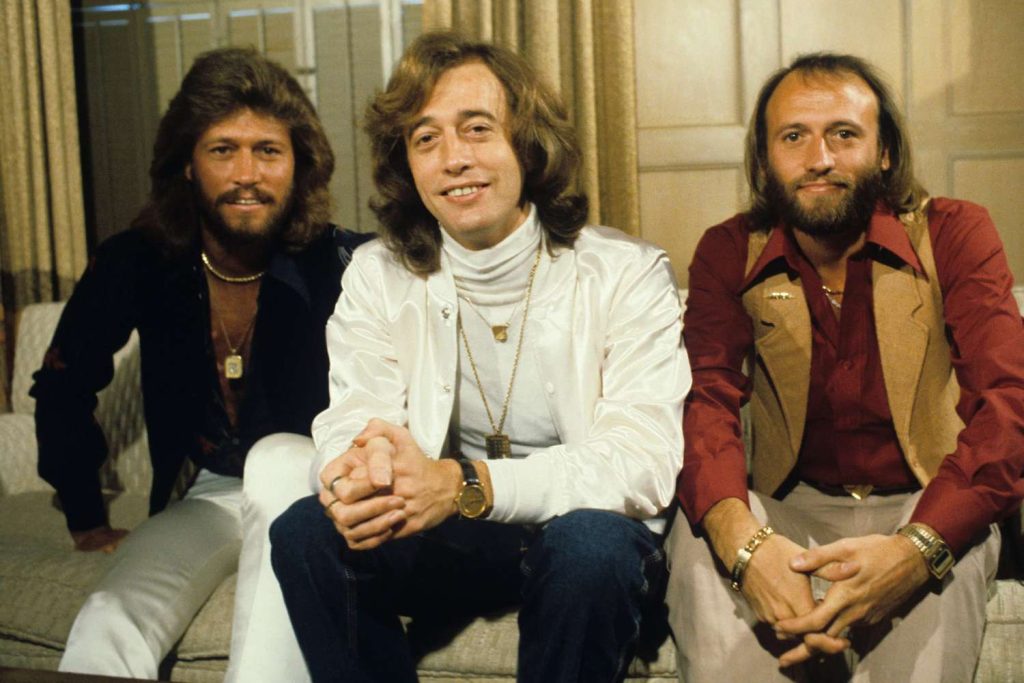
A Solitary Reflection on Love and Longing
When the Bee Gees released their poignant ballad “Alone” in 1997, it was more than just another addition to their illustrious discography. It was a heartfelt ode to solitude, longing, and the bittersweet nature of love. Emerging from their album Still Waters, this track served as a testament to the Gibb brothers’ enduring ability to craft songs that resonate deeply with the human spirit. The song graced the charts by reaching number 28 on the Billboard Hot 100 in the United States and even higher in the UK, peaking at number five. This marked a significant return to form for the Bee Gees during a time when musical landscapes were rapidly evolving.
“Alone” is a composition that weaves together themes of introspection and emotional reflection. At its core, it explores the universal experience of feeling isolated even amidst a world full of people. The Bee Gees, known for their rich harmonies and evocative songwriting, capture this sensation with a melodic line that tugs at the heartstrings. The song’s lyrics speak to those moments when one is surrounded by memories of a loved one yet feels an inexplicable emptiness — an emotion that many can relate to, especially those who have weathered the storms of life and love.
The story behind “Alone” is as compelling as the song itself. Written by Barry, Robin, and Maurice Gibb, it reflects their personal journeys and collective experiences as brothers who navigated both triumphs and tragedies together. By the mid-1990s, the Bee Gees had already cemented their place in music history with hits spanning decades, yet they continued to explore new themes and sounds. With “Alone,” they delved into introspective territory, offering listeners a glimpse into the vulnerability that often accompanies fame and success.
In crafting this piece, the Bee Gees drew from their own lives — moments of separation during tours, personal losses, and the solitude that can accompany stardom. The song’s poignant chorus encapsulates this sentiment perfectly: “And now I cry in the midnight hour / That you don’t want me anymore.” It’s a powerful line that speaks to anyone who has experienced heartache or the feeling of being left behind.
Musically, “Alone” stands out for its lush production and signature harmonies that are both haunting and beautiful. The arrangement combines elements of pop with subtle hints of folk influences, creating a soundscape that is both contemporary and timeless. The Bee Gees’ distinctive vocal blend adds depth to the song, imbuing it with an emotional intensity that lingers long after the final note fades away.
For older listeners, “Alone” might evoke memories of past loves or moments of introspection during life’s quieter times. The Bee Gees have always had a knack for capturing these fleeting yet profound emotions in their music. Their ability to do so with such elegance and sincerity is what has endeared them to fans across generations.
In reflecting on “Alone,” it’s essential to recognize its place within the broader context of the Bee Gees’ legacy. While they are often associated with upbeat disco anthems like “Stayin’ Alive” or “Night Fever,” this track highlights their versatility as artists capable of exploring complex emotional landscapes. It serves as a reminder that even amidst life’s greatest joys and successes, there are moments when we all feel truly alone.
As you listen to “Alone,” allow yourself to be transported back to those moments in your own life when you’ve felt disconnected or yearned for connection. Let the gentle strains of the melody wash over you like waves on a quiet shore, bringing with them memories both sweet and bittersweet. In doing so, you’ll discover why this song continues to hold a special place in the hearts of many — for it captures not just solitude but also hope and resilience amidst life’s inevitable challenges.
In essence, “Alone” is more than just a song; it’s an emotional journey that invites listeners to reflect on their own experiences of love, loss, and longing — universal themes that transcend time and continue to resonate deeply with audiences worldwide.
